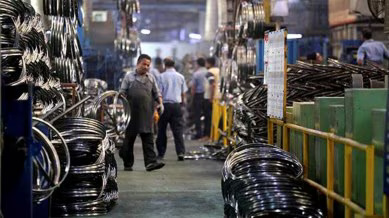- Home
- msme
- Exclusive | MSME relief on cards: Former Cab Secy led panel to suggest overhaul of Quality Control Orders
Exclusive | MSME relief on cards: Former Cab Secy led panel to suggest overhaul of Quality Control Orders

The Indian Express
msme
9/20/2025Shathamanyu
A high-level government panel has recommended easing India’s stringent quality control framework to help Micro, Small & Medium
Enterprises (MSMEs) access affordable imported raw materials and components. The proposals, finalised at a September 6 meeting of
the High-level Committee on Non-Financial Regulatory Reforms (HLC-NFRR) chaired by NITI Aayog member Rajiv Gauba, aim to simplify
the process of obtaining certifications under Quality Control Orders (QCOs).
QCOs are legal directives issued by ministries mandating conformity with standards under the Bureau of Indian Standards (BIS) Act,
which lead to BIS certification. At present, BIS has formulated 10 technical conformity assessment schemes. The committee has
suggested reducing these to two — a simplified procedure for low-risk products and stricter checks for high-risk ones. This shift
is intended to ensure imported inputs that cannot be manufactured domestically remain accessible to MSMEs.
Another major recommendation is to move the emphasis from factory inspections to market inspections, consolidating guidelines and
reducing compliance burdens. However, some concerns remain that avoiding factory checks might weaken efforts to curb counterfeit
goods.
The panel also proposed extending or even making BIS licenses indefinite, with periodic inspections to ensure regulatory
efficiency. Currently, most products fall under Scheme-I, which involves factory visits, independent sampling, and surveillance.
In contrast, Scheme-II, used by the Electronics and IT Ministry and Renewable Energy Ministry, relies on desk audits,
self-selected samples, certifications valid for two to five years, and market surveillance.
The HLC-NFRR, set up by the Cabinet Secretariat in August, includes officials from multiple ministries and industry bodies such as
CII, FICCI, and ASSOCHAM. BIS data shows 187 QCOs have been issued covering 770 products, with 84 introduced in the last three
years. Recent QCOs span items like textiles, helmets, fans, solar systems, and steel pipes.
Recent news
Related News

MSMEs, startups urged to meet ₹50K cr defence exports target: MoS Defence
9/20/2025 Shathamanyu

IBA Convenes Dialogue With DFS, SIDBI, Banks & Industry Associations On Supporting MSMEs
9/20/2025 Shathamanyu


MSME Ministry To Hold PM Vishwakarma & NSSH Mega Conclave In Bodh Gaya, Bihar 2025
9/20/2025 Shathamanyu